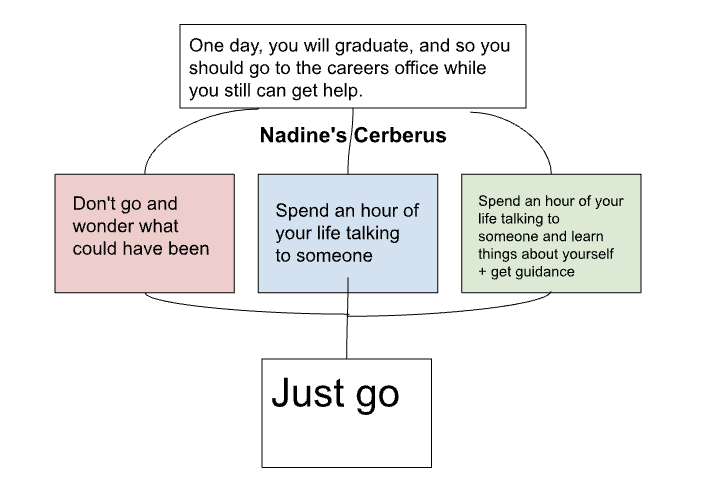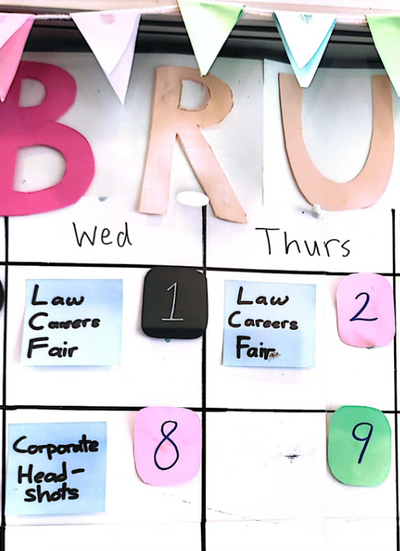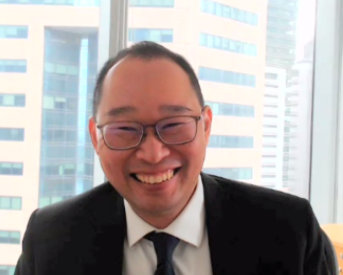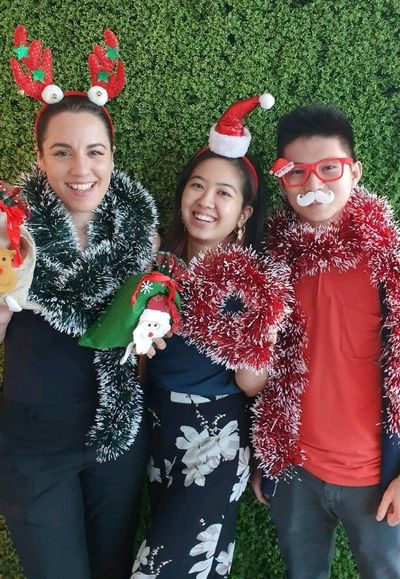
Rajah and Tann Asia comprises multiple firms in the region. Each firm offers the highest standards of service to locally based clients, helping to handle complex regional and cross-border transactions and to provide seamlessly excellent legal counsel across the region. Rajah and Tann’s area of practice includes, but is not limited to, general corporate and commercial law as well as mergers and acquisitions.
Here we interview Paul Tan, a Partner at Rajah and Tann.
J: (Introductions) One of the purposes of this career fair is for NUS students to find out more about firms, especially the ones that are more well-known. Could you tell us more about your firm?
Paul: There are three things that I would highlight. The first is that we are the only Singapore-based homegrown international firm. As of two years ago, we have offices in every Southeast Asian country as well as Shanghai, so the coverage is remarkable and unique. No other local or international firm can provide that kind of coverage.
What is unique about our Southeast Asian partnerships is that they are all locally qualified lawyers or law firms. The reason for this was that we wanted to be able to provide local law expertise. It’s not just a case of flying in and flying out of jurisdictions or just using it as a base, but rather, we really wanted to grow our legal services offerings in a more organic way. For students, trainees and associates, there will be opportunities to work with our regional partners, to work across firms and even to be posted to places that are more unusual but which are from emerging markets. It’s quite exciting.
For example, the person who first helped us set up our Myanmar office was a first or second year. He spent six months on an internship with our firm, probably a little bit longer. He helped us look for office space and organised the renovation works. At that time, Myanmar was really quite underdeveloped. Now, of course we have hotel space and all that, but previously, it was just like a chicken shed.
The second thing is that we have very strong specialisations in many areas, such as arbitration, shipping, construction, banking and finance. This gives our trainees and associates opportunities to really hone their skills at the highest levels.
And the third thing that I would say is that we’re really quite a friendly firm. Generally speaking, this is one thing that we keep hearing from our associates. There’s very little hierarchy. People call each other by people’s names, partners’ doors are generally open. There’s a sense of real camaraderie. We try to create a collaborative learning environment.
J: That’s nice. So, what kind of people would fit into R&T? Do you feel that there’s a certain type?
Paul: Apart from academic ability, I think we look for people who are more down to earth, who see their colleagues as friends and not fellow competitors. And we try to have a very strong culture of paying it forward, in the sense of trying to groom the next generation. For example, this decision to regionalise our firm is really a plan for the future.
The older guard will not see the full benefit of regionalisation. It will take years to become truly good for us. I would say maybe it would take about ten years or so. By that time, many of them would have retired already. But they are still investing in this latest venture. The idea is that the firm will have longevity beyond the present generation. Hence, the people that come to us must embody the idea that they are taking care of the next generation.
I see even the young associates taking the trainees out for lunch on their own initiative. Or they try to give the interns feedback in their work because sometimes the partners are not around — they’re busy flying around. So the immediate contact for those trainees, to hear their voices, is the next work level. This is often someone who is about 3 or 4 years more experienced, maybe a senior associate.
We’re looking for that kind of people: those who are collaborative, who pay it forward, who are friendly. That kind of environment.
J: Just now, you mentioned there would be training programme available for the associates later today?
Paul: Yes, there will be training for the associates. Actually, the whole firm is organised such that we have an associate management committee which is elected by their peers. The idea behind this committee is to act as an interface between the senior management and associates. They bring up feedback; things that we can improve. In addition to that there is also the social dimension. They organise events, one of which is monthly drinks. It’s social, for everybody.
J: That’s very reminiscent of our student clubs in school.
Paul: I guess so. But it’s just an opportunity to hang out and bond.
J: What do you think are the good training opportunities that is regularly provided for trainees and associates? I think that is a concern that we students will be concerned about.
Paul: We do have a structured training programme for all incoming trainees and associates also. We call this Raising the Bar within the firm. Every trainee and every associate will go through a programme which will teach them things like drafting, how to research, how to navigate our IT system, expectations of partners and how to deal with clients. We do have a programme for them on top of their work. For the most part, training is done through learning by doing so that’s a huge aspect of it. However, we also have courses which are done in-house to train them.
This is an area we are constantly trying to improve. For example, next year we are going to reinforce the training programme for the incoming trainees. It will not fully be the international firm model. Some of them do residential one week, two-week training. We will probably have something on a smaller scale — maybe a few days, just to help them start out when they start to do work. So, it will be an orientation program plus training. We are trying to improve our training programmes.
The other thing that we try to do is to help our younger disputes lawyers get more exposure to court work or to arguing as much as they can. So, we do try to look out for opportunities for that to happen. Sometimes it’s not easy because the cases we attract tend to be quite high stakes and high value but we do try to take on smaller pieces of work, sometimes for them to argue and run and manage the time by themselves with some supervision. Essentially, they will be doing these cases by themselves. Even within the bigger cases, we try to carve out roles for them like finding a witness they can deal with. On a day to day basis, we try to give the associates a lot of autonomy in terms of dealing with the clients, responding to the clients. Of course, they clear this with us and check with us if their proposed actions are correct or not. However, by and large, we try to make them interface with the clients as quickly as possible so that the clients get comfortable with them and they also learn to feel for that professionalism and personality.
Our teams are very lean. On a particular file you will not find five layers between the associate and partner. It is a very flat structure. Most of the time, a case has perhaps one or two associates. If it is a particularly big file, maybe there will be a senior associate or junior partner, but the structure is generally quite flat. As a result, they get maximum exposure to both the partner and also the client as soon as possible.
J: How was your experience when you first started working at Rajah & Tann?
Paul: Well, my experience is very unique so I don’t know if this is relevant to most people.
I actually started at Supreme Court as a JLC first, so by the time I got to R & T I was already in my third year. I had the fortune of working with the now Chief Justice at that time. He was a very good mentor, excellent litigator, very well prepared. I learnt a lot working with him and just seeing how he does things, handles clients. The thing that stands out for me working with him is all that he was always unflappable. As a younger lawyer working for the first few years, you are generally always very nervous and trying to do your best. I think sometimes people get upset, shout, that sort of thing. It doesn’t help the situation. Because I’ve had the benefit of that kind of great mentorship, I try to emulate this in my own practice now, with the trainees and associates.
Actually, the truth is if you plan properly and have a schedule, and work with a specific purpose, most of the time you will not be placed in a situation where you have to do serious last-minute preparation. That’s what I try to do.
J: You mentioned you started out as a JLC. Do you have any advice for law students who may want to embark on the JLC programme?
Paul: It was a tremendous learning experience because you get to sit in on important cases before the board. You work together with the judge, so you learn about what persuades them and why. The next time you appear in practice before them, you will be more familiar with what the end-product should look like. Having said that, it is a very different experience in practice. When you’re a JLC, you look at the end-product; but when you are a practising lawyer, you are assembling the product and that requires a different skill set, such as knowing how to find out facts, dealing with clients and the opposing counsel — but at least you know what destination you can get to, which is very valuable in itself.
J: Do you have any other advice for students, on a general level?
Paul: You should work hard.
The way to do well in law school is that there is a certain skill in answering questions, which in some way is not so different from practice. When you appear before a court, it’s a little bit like taking an exam — you have studied all your material and you roughly know what sort of question they will ask, but the question could still be phrased differently, and you will be required to think on your feet. When you’re studying for an exam, you need to master your material and have a more rounded picture of what the topic or subject-matter is about, so in case there is a question that throws you off, you will be able to respond to it. You really have to go beyond your reading lists.
I think students should also focus on learning how to reason as a lawyer. When you practice, what matters is not the content of what you studied in school, but how you reason out a case theory in areas of law that sometimes may not exist, or there is a particular point of issue that has not yet been explored or is very controversial. Clients will only come to you when the issue in dispute is a grey area. As a student, these 4 years are an opportunity to pick up the skill of how to argue something that is not so clear-cut.
J: Given the trend of law students preferring international firms, do you have any advice for such students?
Paul: I think it is a different competition. What the international firms can offer are opportunities to go overseas. Their training programmes are very impressive, and their systems are very sophisticated. Some of the bigger firms in Singapore are trying to catch up, and we are trying to learn from them. To some extent, we are limited by our scale. Take R&T for example – we have 600 Lawyers across Asia, and that is probably what some international firms have in one location. What we can offer is a place that you can call your own at the end of the day. You will have an opportunity to direct the future of the firm and the future of those working with you. I think that is what motivates most of us to stay in a Singapore practice.
It depends what you want. I’d say you should think carefully about where you want to end up in life. If you are at a place you’re not happy with, you won’t stay long enough to see your rewards. You want to find a place where you can find a future for yourself with the mentor you would like to be with, the practice area you would like to join and importantly, the firm should be able to offer you a long-term proposition.
J: Where do you see yourself in 10-20 years?
Paul: I enjoy what I’m doing, and I hope to become a better lawyer. The one hope I have, not only for myself, but for the profession as a whole, is that our lawyers will become more recognised globally.
I have no doubt that we have the technical skills, but I hope that over time, the perception of Singapore lawyers will match the part too – people would then perceive us the same way as the top international lawyers.








